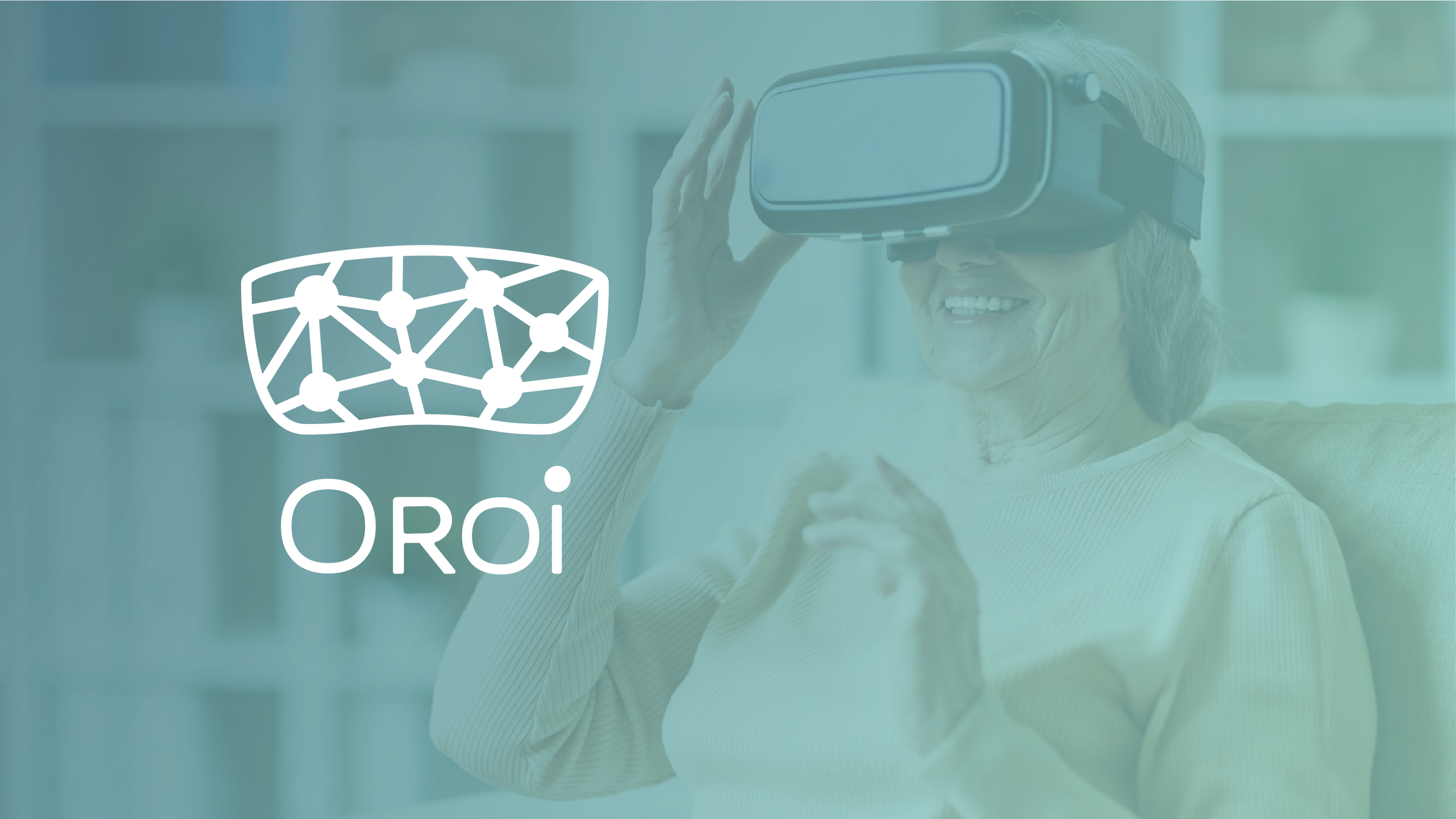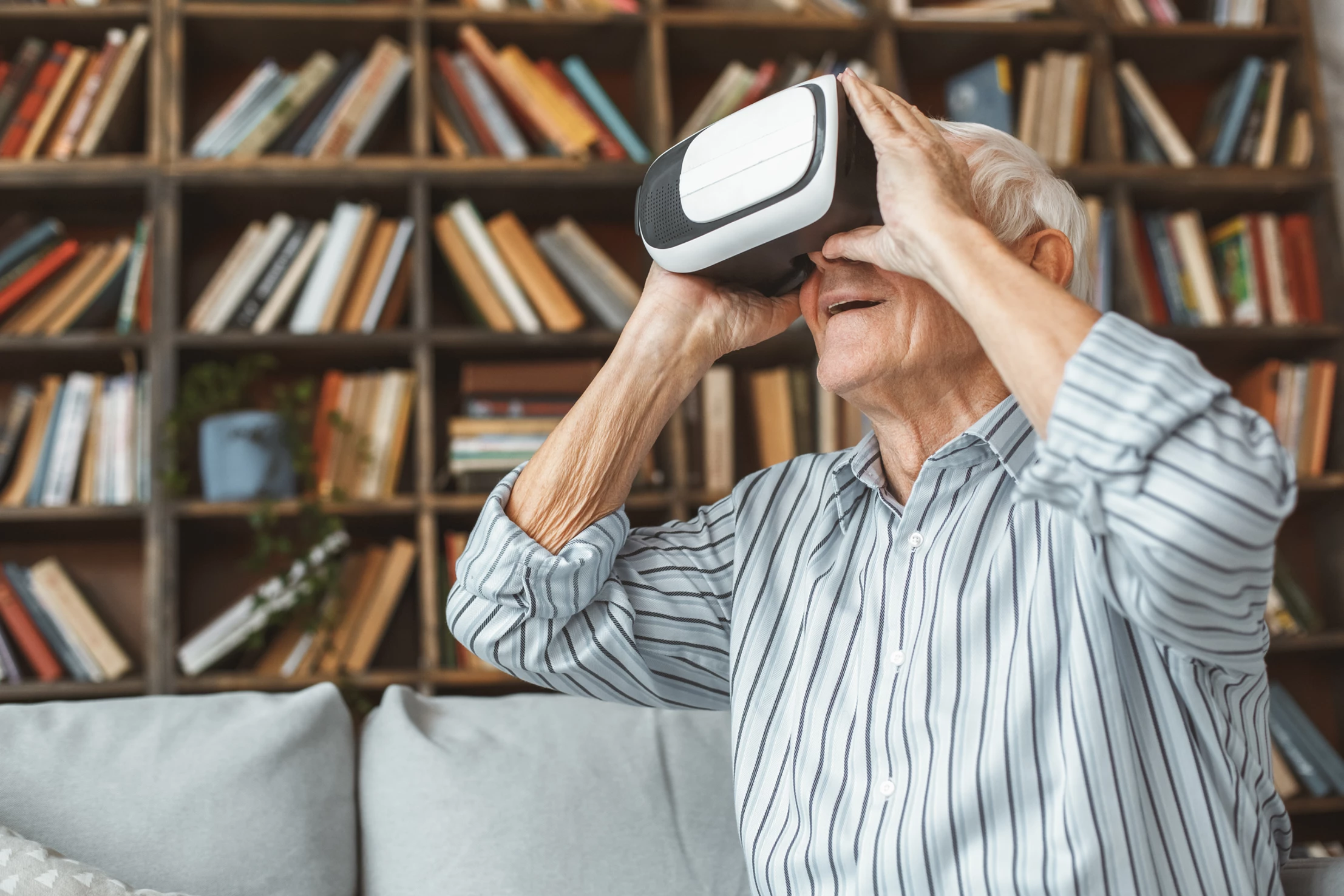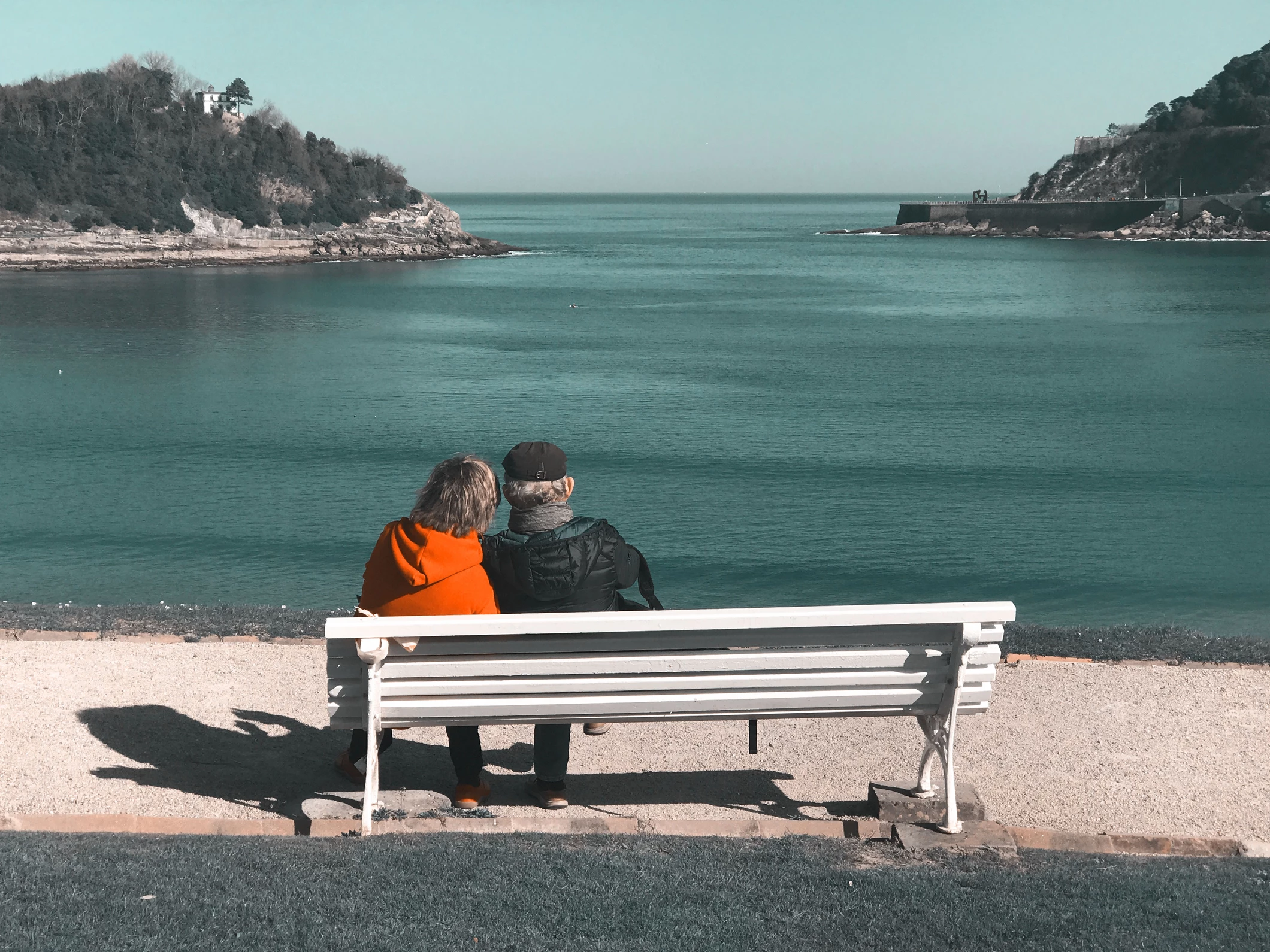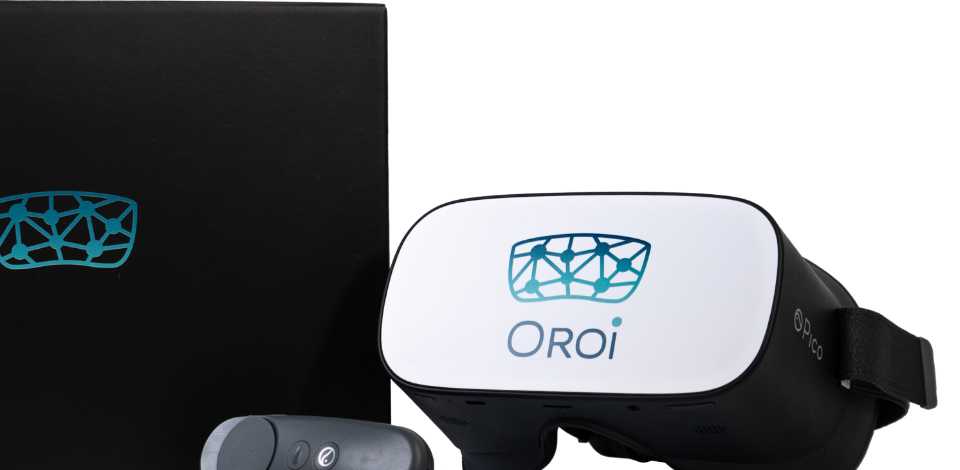News
Alzheimer's disease
Adriana Gómez - - 4 Min.
On the occasion of International Alzheimer's Day, at Oroi we give you answers to some of the most common questions about this disease.
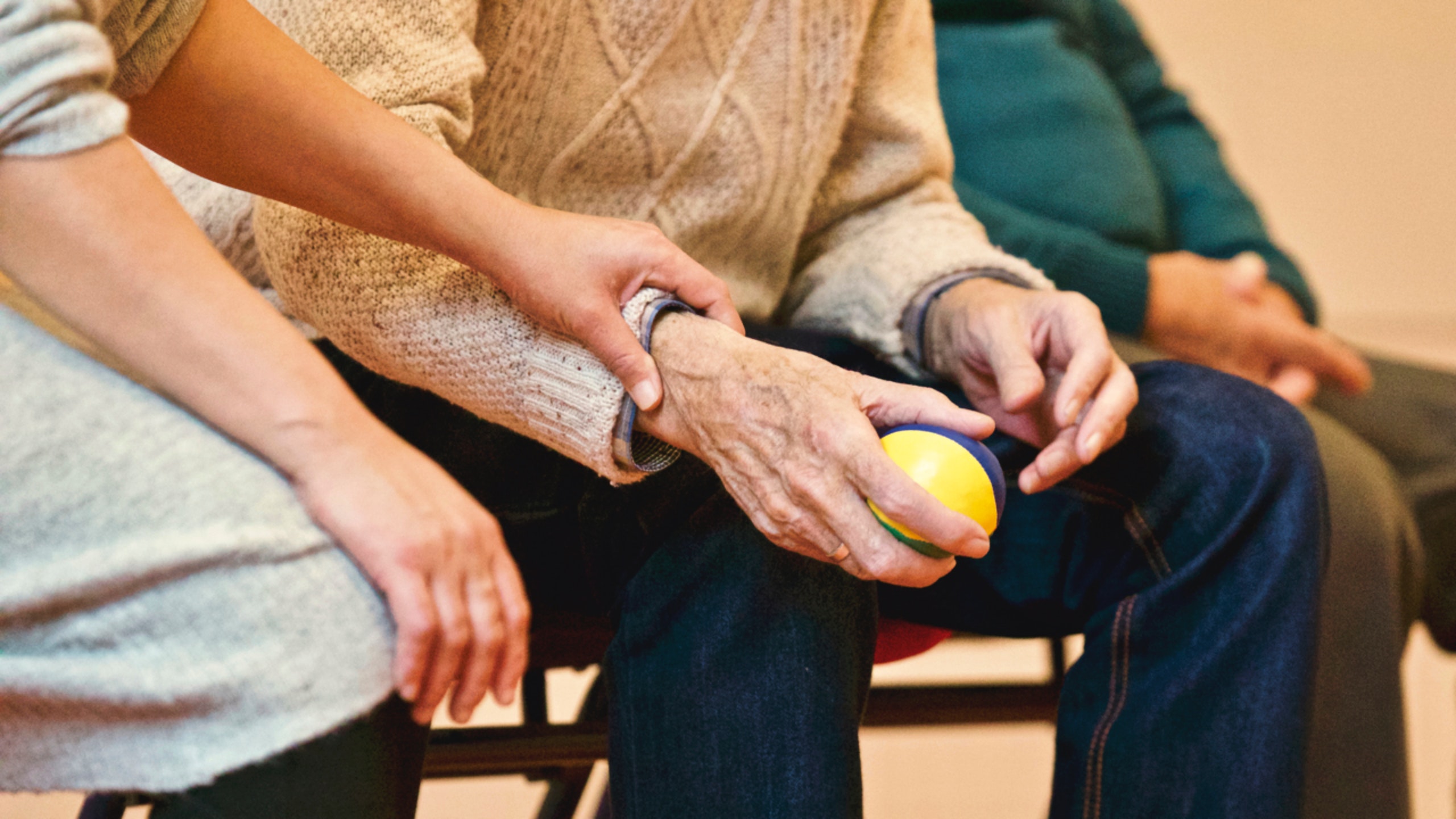
Alzheimer's disease
What is Alzheimer's disease?
Alzheimer's disease is a neurodegenerative disease [1] characterised by the presence of cognitive and behavioural deterioration with an insidious onset and progressive course of onset in adulthood [2], what does this mean? That the neurons of a person suffering from Alzheimer's will progressively degenerate/die, leading to cognitive and/or motor problems.
What are the consequences?
One of the earliest symptoms is memory deficit. Usually, the patient progressively worsens, showing other cognitive deficits such as: apraxia (inability to dress), aphasia (inability to produce/comprehend language), disorientation and inability to reason, leading to a deterioration of the individual in all senses [3,4,5].
How is it treated?
There is currently no cure for Alzheimer's disease, but drugs, cognitive stimulation and family counselling [6] are used to slow the progression of the disease, improve behavioural problems, confusion and agitation, modify the home environment, and support family members and other caregivers [3].
Regarding non-pharmacological therapies, the combination of cognitive exercises and exercise has been found to improve cognitive functions and functional status in older people [7].
Interventions based on caregiver support and training have been shown to delay institutionalisation of the person with Alzheimer's [8].
What are the predisposing factors?
Age is currently the main risk marker for the disease, with the prevalence of the disease doubling every 5 years after the age of 60, from 1% between 60 and 65, to 4.3% at 75, to 28.5% at 90 years of age [4].
Although the most important risk factor is ageing, the second most important risk factor is family history of the disease. Approximately 40% of affected individuals have a family history of Alzheimer's disease [9].
On the other hand, Alzheimer's disease is more prevalent in women than in men, although this is probably due to the longer life expectancy of women [4].
There is also evidence of an increase in Alzheimer's disease among people with less education [4].
What can I do to prevent it?
Healthy eating
Consumption of antioxidants appears to be neuroprotective and may mitigate age-related cognitive decline, as does weekly consumption of fish and other dietary sources of omega-3 fatty acids [4,10,11].
Countries with low daily caloric intake have been found to have a lower incidence of Alzheimer's disease than those with higher daily caloric intake [4].
Physical exercise
Physical activity has been shown in multiple longitudinal observational studies to have a protective effect, delaying the onset and slowing the progression of the disease [12,13].
Exercise by exercise cycling or walking a minimum of 20 minutes daily has shown improvements in cognitive level [14].
Cognitive stimulation
Many studies have shown that cognitive stimulation slows the progression of cognitive decline in older people [15].
Such interventions have been shown to slow intellectual decline and reduce behavioural disturbances in patients with dementia, thus improving the perceived quality of life of patients and their families [16].
References
1. Rodriguez, J. & Hernández, M. (2002). Actualización sobre la enfermedad de Alzheimer. Revista Cubana de Medicina General Integral, 18(4): 264-269.
2. Valls-Pedret, C., Molinuevo, J.L., Rami, L. (2010). Diagnostico precoz de la Enfermedad de Alzheimer: fase prodrómica y preclínica. Revista de Neurología, 51(8): 471-480.
3. Romano, M.F., Nissen, M.D., Del Huerto, N.M. & Parquet, C.A. (2007). Enfermedad de Alzheimer. Revista de Posgrado de la Vla Cátedra de Medicina, 175: 9-12.
4. Barranco-Quintana, J.L., Allam, M.F., Del Castillo, A.S., Navajas, R.F.C. (2005). Factores de riesgo de la enfermedad de Alzheimer. Revista de Neurología, 40(10): 613-618.
5. Algado, M.T., Basterra, A. & Garrigós, J.I. (1996). Envejecimiento y enfermedad de Alzheimer. Reis, 81-103.
6. Donoso, A. (2003). La enfermedad de Alzheimer. Revista chilena de neuro-psiquiatria, 41(2): 13-22.
7. Matilla-Mora, R., Martínez-Piédrola, R.M., Fernandez, J. (2016). Eficacia de la terapia ocupacional y otras terapias no farmacológicas en el deterioro cognitivo y la enfermedad de Alzheimer. Revista Española de Geriatría y Gerontología, 51(6): 349-356.
8. Olazarán, J., Reisberg, B., Clare, L., Cruz, I., Peña-Casanova, J., Del Ser, T., Woods, B., Beck, C., Auer, S., Lai, C., Spector, A., Fazio, S., Bond, J., Kivipelto, M., Brodaty, H., Rojo, J.M., Collins, H., Teri, L., Mittelman, M., Orrell, M., Feldman, H.H., Muñiz, R. (2010). Eficacia d elas terapias no farmacológicas en la Enfermedad de Alzheimer: una revisión sistemática. Dementia and Geriatric Cognitive Disorders, 30(2): 161-178.
9. Setó-Salvia, N., Clarimón, J. (2010). Genética en la enfermedad de Alzheimer. Revista de Neurología, 50(6): 360-364.
10. Lanyau, Y. (2009). La dieta en la enfermedad de Alzheimer. Revista Cubana de Salud Pública, 35(4): 55-64.
11. Herman, H., Alanís-Garza, J.A., Estrada, M.F., Mureyko, L.L., Alarcón, D.A., Ixtepan, L. (2015). Nutrición que previene el estrés oxidativo causante del Alzheimer. Prevención del Alzheimer. Gaceta médica de México, 151: 245-251.
12. Toledo, J. (2011). Epidemiología descriptiva y analítica de la Enfermedad de Alzheimer. Revista Alzheimer, 47: 16-23.
13. Franco-Martín, M., Parra-Vidales, E., González-Palau, F., Bernate-Navarro, M., Solis, A. (2013). Influencia del ejercicio físico en la prevención del deterioro cognitivo en las personas mayores: revisión sistemática. Revista de Neurología, 56(11): 545-554.
14. Nascimento, C.M.C., Varela, S., Ayan, C., Cancela, J.M. (2016). Efectos del ejercicio físico y pautas básicas para su prescripción en la enfermedad de Alzheimer. Revista Andaluza de Medicina del Deporte, 9(1): 32-40.
15. Olivera-Pueyo, J., Pelegrín-Valero, C. (2015). Prevención y tratamiento del deterioro cognitivo leve. Psicogeriatria, 5(2): 45-55.

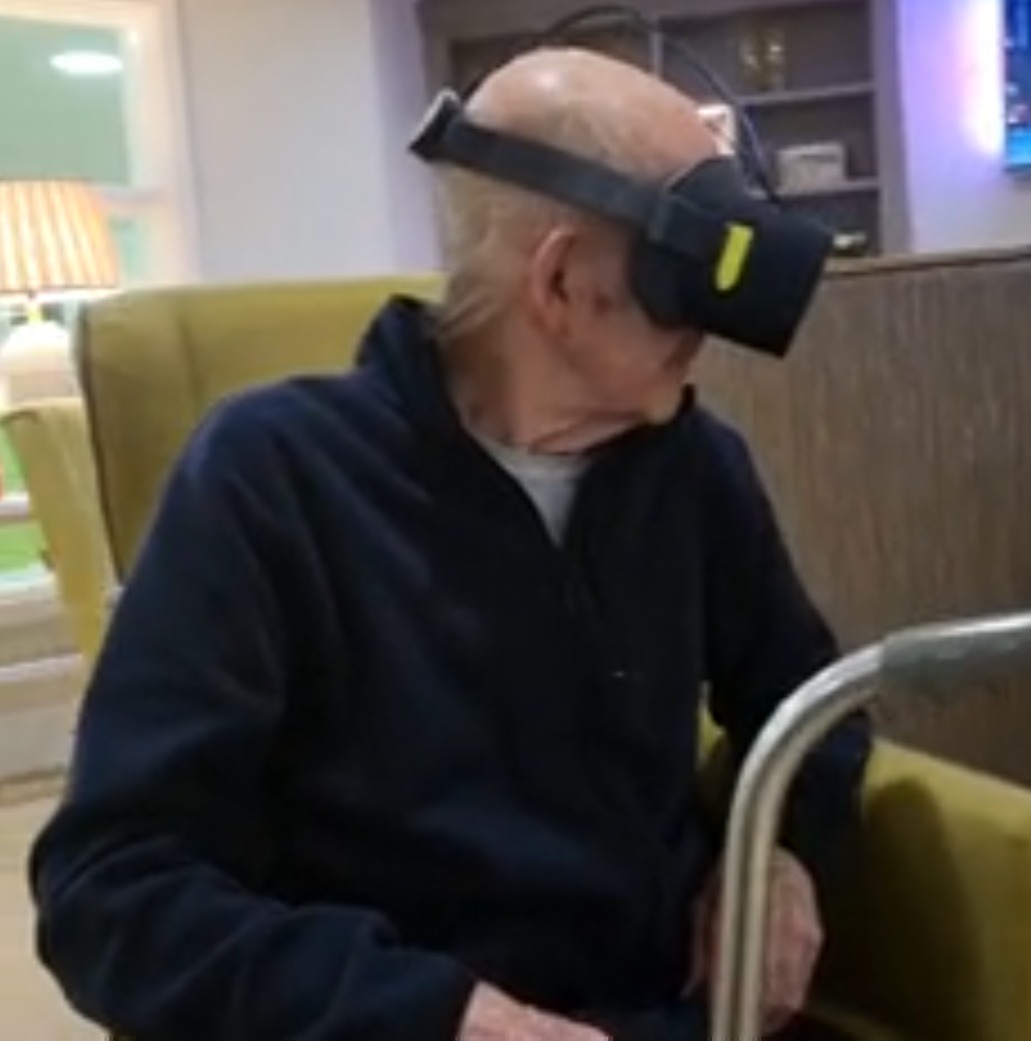
News
Retired ship engineer Ian rekindles his love of the sea during a virtual reality tour with Oroi

News
VR Elderly care Company, OROI, Appoints Linda Hypky as Marketing and Sales Manager in Germany
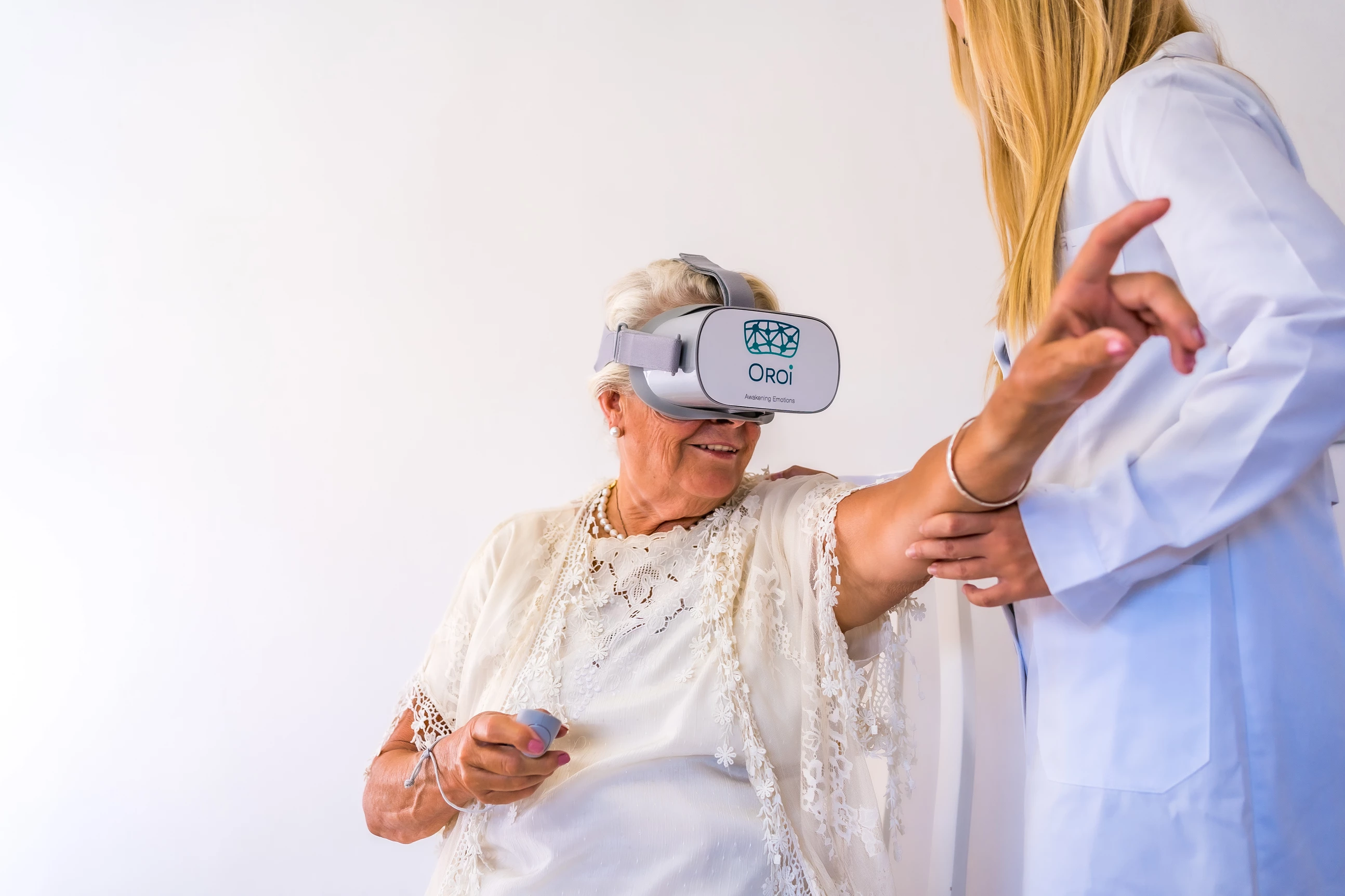
News
Its use started with computer games and is now an important part of the medicine and care sector- VR

